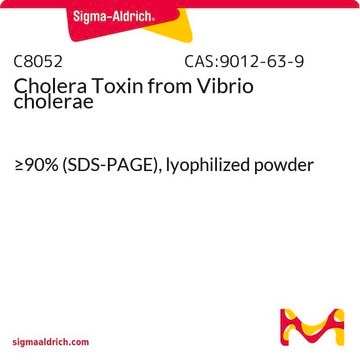L0259
Lucifer Yellow CH dilithium salt
Powder
Synonym(s):
6-Amino-2,3-dihydro-1,3-dioxo-2-hydrazinocarbonylamino-1H-benz[d,e]isoquinoline-5,8-disulfonic acid dilithium salt
About This Item
Recommended Products
product name
Lucifer Yellow CH dilithium salt, fluorescent stain
Quality Level
form
powder
color
faint orange to very dark orange
solubility
H2O: 1 mg/mL
fluorescence
λex 428 nm; λem 540 nm in H2O
application(s)
diagnostic assay manufacturing
hematology
histology
storage temp.
2-8°C
SMILES string
[Li+].[Li+].NNC(=O)NN1C(=O)c2cc(cc3c(N)c(cc(C1=O)c23)S([O-])(=O)=O)S([O-])(=O)=O
InChI
1S/C13H11N5O9S2.2Li/c14-10-5-1-4(28(22,23)24)2-6-9(5)7(3-8(10)29(25,26)27)12(20)18(11(6)19)17-13(21)16-15;;/h1-3H,14-15H2,(H2,16,17,21)(H,22,23,24)(H,25,26,27);;/q;2*+1/p-2
InChI key
RPKCZJYDUKVMGF-UHFFFAOYSA-L
Looking for similar products? Visit Product Comparison Guide
Related Categories
General description
Application
Lucifer Yellow CH is mainly used as a tracer dye and useful in marking nerve cells.
Storage Class Code
11 - Combustible Solids
WGK
WGK 3
Flash Point(F)
Not applicable
Flash Point(C)
Not applicable
Personal Protective Equipment
Certificates of Analysis (COA)
Search for Certificates of Analysis (COA) by entering the products Lot/Batch Number. Lot and Batch Numbers can be found on a product’s label following the words ‘Lot’ or ‘Batch’.
Already Own This Product?
Find documentation for the products that you have recently purchased in the Document Library.
Customers Also Viewed
Our team of scientists has experience in all areas of research including Life Science, Material Science, Chemical Synthesis, Chromatography, Analytical and many others.
Contact Technical Service










